Family Law Blog – Retroactive Child Support
In family law proceedings a common issue that may arise is the financial aspect of the children’s care. Whether you or your former partner are responsible for paying child support, you’ll want to ensure that the correct amount is being paid. Retroactive child support can be a grey area that you may find yourself dealing with and is defined as past child support owed for a child that has not been paid or was underpaid for a determined period of time.
There are two reasons you may be expected to pay or receive retroactive child support:
- For an extended period, the recipient parent does not seek or apply for child support
- The receiving parent requests child support but ends up having to wait a long period of time for a court date and order for continuing or retroactive child support.
- The payor parent does not inform the recipient of their increase in income so the recipient doesn’t receive more money.
Knowing what you are obligated to pay (or receive) can affect you greatly, so you’ll want to ensure that the amounts are calculated correctly, in accordance with the Family Law Act.
One such case that delves into this area of family law is Michel v. Graydon, 2020 SCC 24, which was decided by the Supreme Court of Canada in 2020, and it dealt with retroactively altering child support orders under the Family Law Act. The Supreme Court of Canada overturned the B.C. Court of Appeal’s decision in Michel, based on the case law of Dring v. Gheyle, 2018 BCCA 435.
In Dring, a five-panel division of the Court of Appeal found that the court lacked authority to make an order where an application to retroactively seek child support. An original FLA order was filed after the status of “child” was no longer applicable. In Michel, the B.C. Court of Appeal used the Dring case law and denied the mother’s request for retroactive child support.
Michel’s mother took her case to the Supreme Court of Canada. The mother requested that child support amounts be amended based on the father’s actual income, which was higher than what was revealed in the original judgement. The time period in question spanned over 11 years, and by the time the application was filed, the child was no longer considered a “child” by definition in the Family Law Act.
Despite the beneficiary child no longer fitting the definition of “child” under the FLA at the time the application is filed, the Supreme Court of Canada concluded that an order to retroactively vary child support can be made. The court reached this judgement by interpreting section 152 of the Family Law Act and cautioned against carelessly dismissing these applications because it could encourage parents to evade child support responsibilities.
Section 152 of the Family Law Act states:
Changing, suspending or terminating orders respecting child support
152 (1) On application, a court may change, suspend or terminate an order respecting child support, and may do so prospectively or retroactively.
(2) Before making an order under subsection (1), the court must be satisfied that at least one of the following exists, and take it into consideration:
(a) a change in circumstances, as provided for in the child support guidelines, has occurred since the order respecting child support was made;
(b) evidence of a substantial nature that was not available during the previous hearing has become available;
(c) evidence of a lack of financial disclosure by a party was discovered after the last order was made.
Michel is notable because it involves a request to retroactively vary an existing ruling under section 152 of D.B.S. v. S.R.G., 2006 SCC 37, which held that original orders for retroactive child support under s. 15.1 of the Divorce Act, R.S.C. 1985, c. 3 (2nd Supp.) could only be granted if the child is a “child of the marriage” at the time the application is made. It is suggested that in the D.B.S. scenario, it might be time to reconsider the “material time” to file an application in the D.B.S scenario. However, until such a review occurs, B.C. courts have continued to find that if the subject child is no longer a “child of the marriage,” there is no authority to impose a retroactive initial judgement for child support under the Divorce Act (see Segura v. Segura, 2020 BCSC 650).
Because each family circumstance is so unique, seeking the help of an experienced family lawyer is the best course of action when dealing with family law issues. At Pathfinder Law, we have the expertise to ensure that you and your children are being treated fairly and that you are paying or receiving the correct amount.
Leaving child support issues unaddressed can result in higher amounts owing, negative court judgements and complicated legal cases. To receive knowledgeable advice on how to proceed with your family law case, contact Pathfinder Law. We look forward to helping you find the best resolution.
Disclaimer – The information contained herein is of a general nature. It is not intended to be legal advice and it is not intended to address the exact circumstances of any particular individual or entity. You should not rely on or act upon such information without receiving appropriate professional advice and without a thorough examination of your particular situation.

